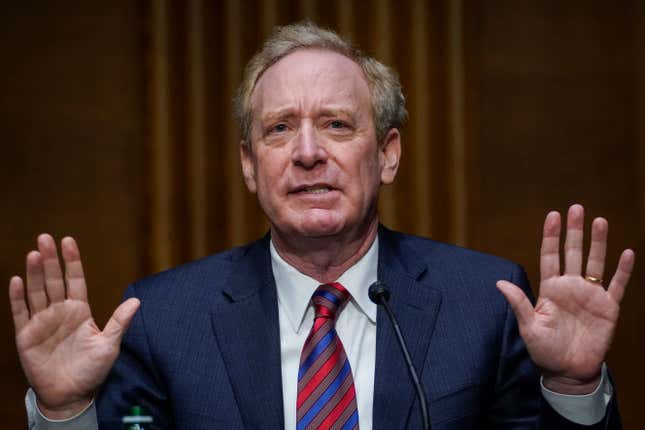
In This Story
Despite a yearslong effort to curb China’s technological advances, a top Microsoft (MSFT-0.92%) executive is warning that the country is not as far behind as the West might think.
Microsoft president Brad Smith said in an interview with CNBC (CMCSA+0.03%) that “in many ways, China is close to, or is even catching up,” with the West.
“I think one of the dangers, frankly, is that people who don’t go to China too often assume that they’re behind,” Smith said at the Web Summit tech conference in Lisbon, Portugal. “But when you go there, you’re impressed by how much they’re doing.”
Asked about U.S.-China trade and technology transfers amid the transition from President Joe Biden to President-elect Donald Trump, Smith said it was too early to assess the impact.
As a U.S.-based company, Microsoft “can do business in China only when we are offering a service that the Chinese government wants to have there, and the U.S. government wants us to bring there,” Smith said.
Smith noted that data centers supporting international firms like Mercedes (MBGAF-2.77%), Siemens (SIEGY-0.60%), Starbucks (SBUX-6.61%) or General Motors (GM-4.40%) have “a level of comfort” with regulators, while consumer services face more restrictions.
“I suspect we’re going to continue to live in a world where some technology will move to China, others will not, and we’re not going to be the ones who decide,” Smith said. “We have to navigate this world — it’s the two governments that will decide.”
Companies in the U.S. and China will continue competing with technology and artificial intelligence now and in “the distant future,” Smith said, adding that companies in the U.S. and Europe should collaborate to grow economies and bring technology like AI to the world together.
Under President-elect Trump’s first term in office, the U.S. has used trade restrictions and sanctioning powers to slow China’s development of AI and other advanced technology. The Biden administration has continued those efforts with tighter export controls on advanced technology such as chips and quantum computers.